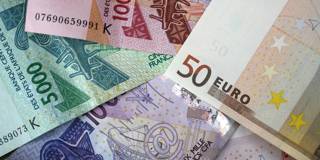Several African countries, including Côte d’Ivoire, Benin, and Kenya, have recently returned to international capital markets, owing largely to improved macroeconomic performance. But at least two dangers loom on the horizon.
BERKELEY – Frontier markets are back. Several African countries have recently returned to global financial markets, placing foreign-currency bonds with international investors. The question is whether they are back for good, or whether someone or something – namely, the US Federal Reserve – will throw a wrench in the works.
Let’s start with the facts. In January and early February, Côte d’Ivoire and Benin were able to place $3.35 billion of bonds with international investors. Côte d’Ivoire’s issue was more than three times oversubscribed, and Benin’s more than six times. Kenya followed with a $1.5 billion Eurobond that attracted more than $5 billion in orders. This activity marked the end of a two-year dry spell when African borrowers were locked out of international capital markets.
In several cases, the revenue raised will be used to buy back debt maturing this year or next. The fact that investors are willing to participate suggests that they are confident in governments’ ability to service their debts. They are not seeking to exit once their holdings mature.

BERKELEY – Frontier markets are back. Several African countries have recently returned to global financial markets, placing foreign-currency bonds with international investors. The question is whether they are back for good, or whether someone or something – namely, the US Federal Reserve – will throw a wrench in the works.
Let’s start with the facts. In January and early February, Côte d’Ivoire and Benin were able to place $3.35 billion of bonds with international investors. Côte d’Ivoire’s issue was more than three times oversubscribed, and Benin’s more than six times. Kenya followed with a $1.5 billion Eurobond that attracted more than $5 billion in orders. This activity marked the end of a two-year dry spell when African borrowers were locked out of international capital markets.
In several cases, the revenue raised will be used to buy back debt maturing this year or next. The fact that investors are willing to participate suggests that they are confident in governments’ ability to service their debts. They are not seeking to exit once their holdings mature.